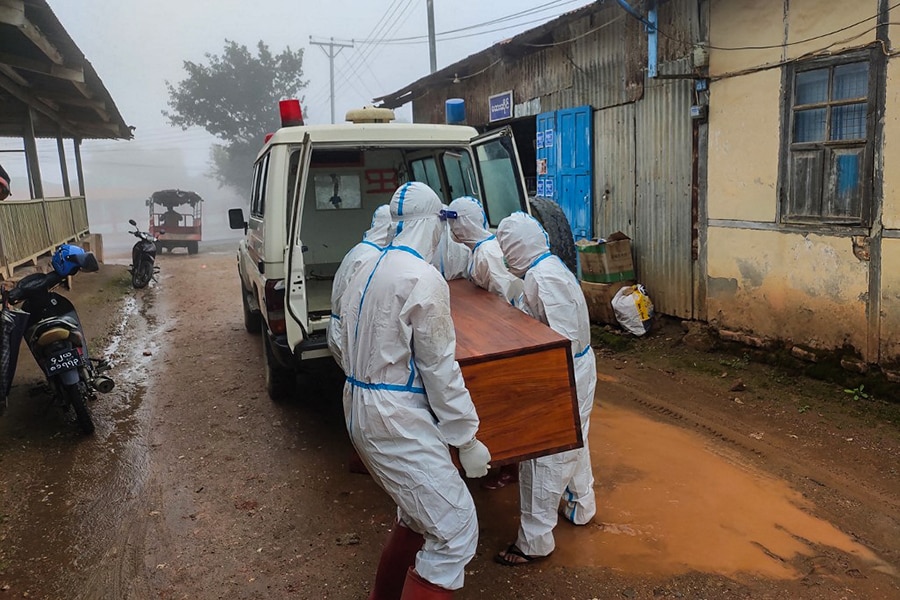
Myanmar's Covid-19 cases are soaring, but generals hold the vaccines
The military's unwillingness to provide details about its vaccination program prompted Covax, the global vaccine-sharing program, to delay a shipment of 5.5 million doses in March
 This handout photo from local media group Chinland Herald Daily News taken and released on June 16, 2021, shows health workers in protective gear carrying a coffin bearing a body of a Covid-19 coronavirus patient out of a hospital in Falam township, western Myanmar's Chin state, for burial at a cemetery.
This handout photo from local media group Chinland Herald Daily News taken and released on June 16, 2021, shows health workers in protective gear carrying a coffin bearing a body of a Covid-19 coronavirus patient out of a hospital in Falam township, western Myanmar's Chin state, for burial at a cemetery.
Image: Handout/ Chinland Herald Daily News/ AFP
Three days before she was arrested by soldiers, Myanmar’s civilian leader, Aung San Suu Kyi, received her first dose of a coronavirus vaccine. Her high-profile inoculation was part of a nationwide campaign to combat the virus through testing, mask-wearing, lockdowns and vaccination.
But like the civilian government that Suu Kyi headed, her program to contain COVID-19 was cast aside by the military when it seized power in the Feb. 1 coup.
“There had been a real push toward testing, surveillance and vaccination, and all of that just crumbled after the first of February,” said Alessandra Dentice, head of Myanmar’s UNICEF office.
Now the country, reeling from a brutal military crackdown and crippled by a monthslong national strike, is paying the price for the junta’s neglect of the pandemic. According to data reported by the regime’s health ministry, the number of daily reported COVID-19 cases has risen sharply, and with limited testing underway, the positivity rate jumped to nearly 22% Thursday. Health experts believe many more cases are going undetected.
©2019 New York Times News Service




